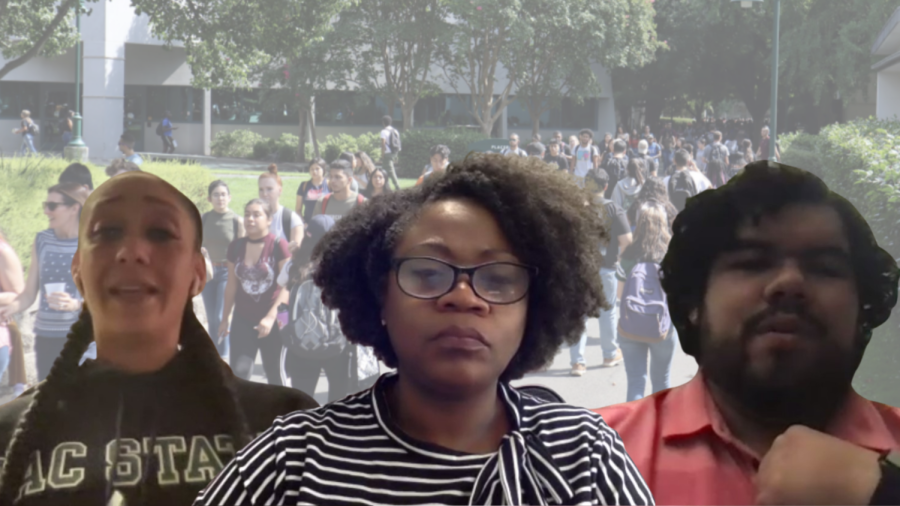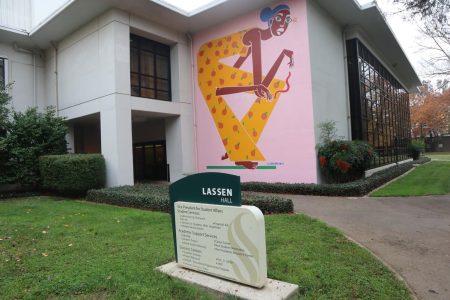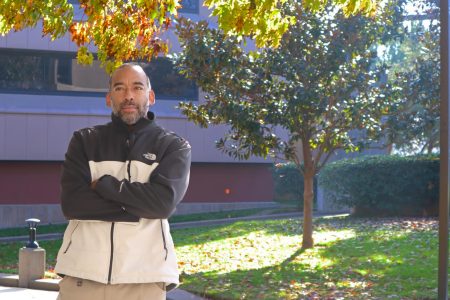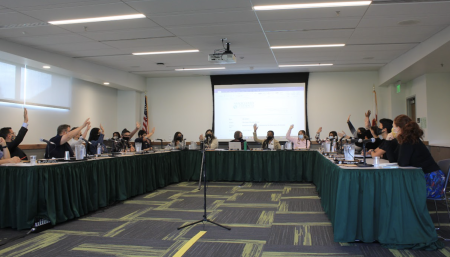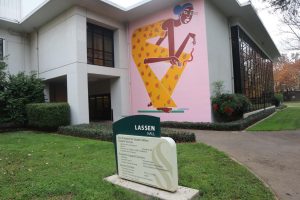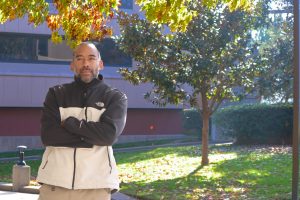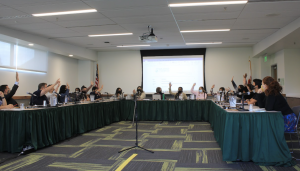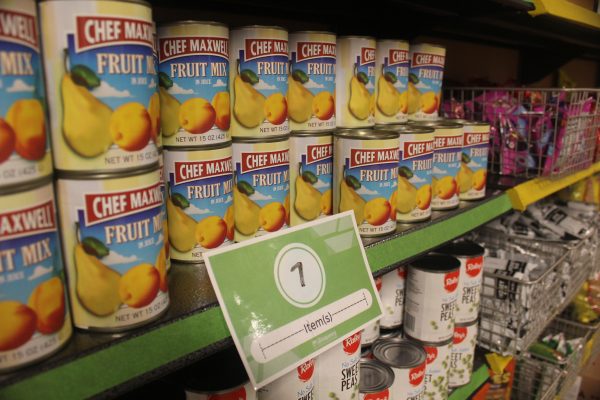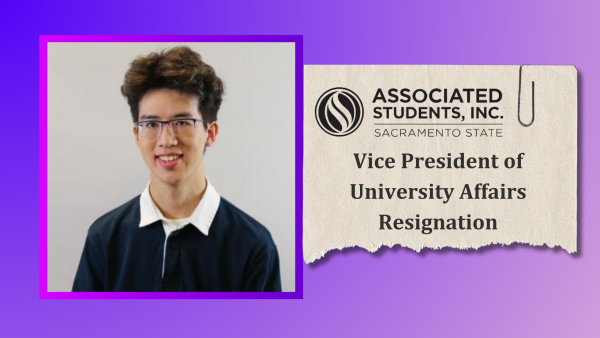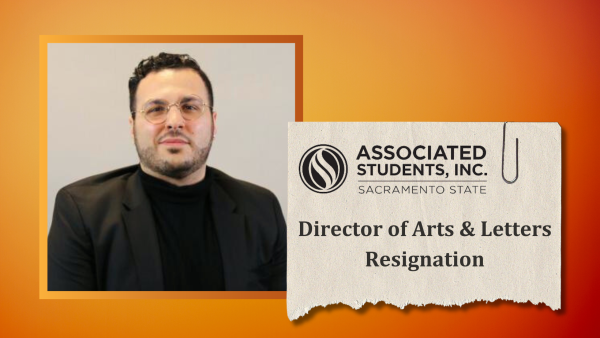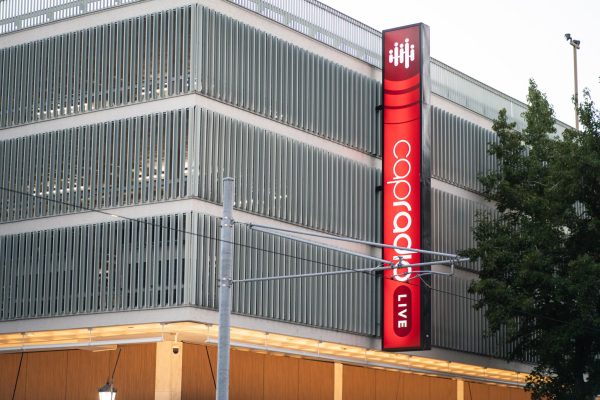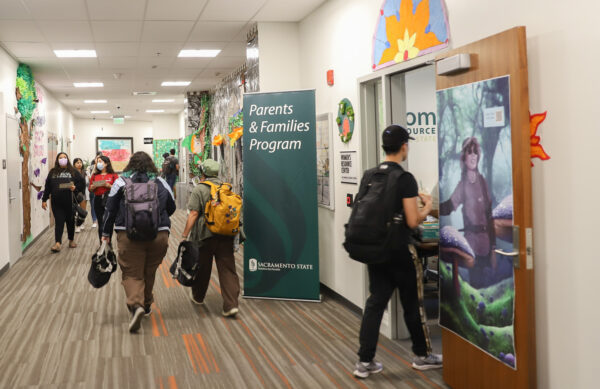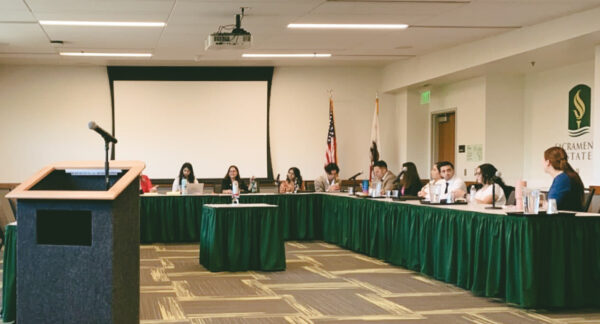Sac State ASI committee hosts forum discussing anti-racism plan, convocation delay
‘To keep delaying it, I know there are reasons behind that. It’s tiring’
(From left to right) Desiree McFarland, Mia Settles-Tidwell and Alan Figueroa-Camarena discuss Sacramento State’s anti-racism plan at a Zoom panel hosted by Associated Students Inc. Student Social Justice and Equity Council on Monday, Nov. 29, 2021. Panelists talked about the implementation of the plan and the importance of creating an anti-racist campus. Photo in background by Max Connor. Photos of panelists by Kris Hall.
December 1, 2021
Sacramento State Associated Students Inc. Student Social Justice and Equity Council hosted a Zoom panel on Monday for students to talk about the anti-racism plan and the importance of making Sac State an antiracist campus.
Mia Settles-Tidwell, the new vice president of Inclusive Excellence at Sac State, began the meeting with a demonstration of the university’s anti-racism and inclusive campus plan. She went over the stages of the over 300-page plan and its condensed 60-page counterpart and the campus’ intended steps to implement the plan.
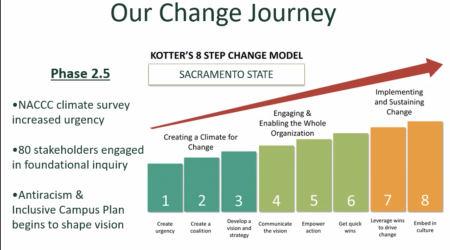
The convocation to discuss the plan with the Sac State community was postponed from September of this year to February 2022.
Campus leaders at Sac State said in the forum that they want Sac State to move quicker with the implementation of the plan.
“We have been asking for this for years and years,” said Amanda Croteau, president of Ensuring Native Indian Traditions on campus. “To just keep delaying it, I know there are reasons behind that. It’s just tiring.”
Croteau, an enrolled Cherokee student at Sac State, was not the only panelist frustrated with the delays.
Panelist Alan Figueroa-Camarena, a third year student at the Student Service Center, also said that campus administration was not being respectful with the handling of the plan and its delays.
“If they started planning this out, it would have been good,” Figueroa-Camarena said.
He said that he thinks it is good that campus administration values it enough to make an effort but asked why the implementation of the plan and the convocation to discuss the plan was delayed.
“I feel like the university just wasn’t ready,” Croteau said. “Once they have this convocation they are going to be held accountable, so they aren’t ready for that.”
Figueroa-Camarena said he felt similar to Croteau in that he too was frustrated with the delay of the convocation.
“It does seem like they probably weren’t ready for what happens next after the beginning of the plan,” Figueroa-Camarena said. “This will be a huge shift in the culture of the university. There has to be some readiness.”
Desiree McFarland was also on the panel representing Project Rebound, a Sac State program to help formerly incarcerated students.
McFarland said that she had to take a step back to look at what pushing back the convocation would mean for the school, and that she would prefer campus administration be ready to implement the changes that marginalized students need.
McFarland said she is a part of Project Rebound because her son’s father is incarcerated.
“I’m 38 and a single Black mom, all these things that would generally stereotype me,” McFarland said.
I feel like the university just wasn’t ready. Once they have this convocation they are going to be held accountable, so they aren’t ready for that.
— Amanda Croteau
Another panelist, Priscilla Morales from the College Assistant Migrant Program (CAMP), said that she is hopeful that the anti-racism plan will lead to change but that the campus must be ready to do so.
“It is unfortunate that [the convocation] was postponed, but it is important that we make sure that it does happen,” Morales said. “It is important that we have a more concrete plan.”
Julia Murillo, the final panelist who works on special projects for the Human Resource Center, said that the plan as it is has redeeming principles.
She said the best part of the anti-racism plan is “providing racial bias training for faculty and students.”
“It’s a great way for students to be reminded and educated of the antiracist value,” she said. “You have to be brave to make tough decisions.”
Croteau said her favorite part of the plan was “bringing in different perspectives of storytelling and art and dance.” She said that Sacramento Native Americans have a lot of storytelling, art and dance in their traditions and that creating a space to share those traditions will give her community the respect that they deserve.
McFarland said she also liked the part of the anti-racism plan that calls for communities to share their stories and their art.
“It allows people to feel like they matter,” McFarland said.
Mcfarland said that educating the greater community about the culture of marginalized students will create a more tolerant campus. She said she feels that if Sac State successfully implements the anti-racism plan, it will be an asset to the greater Sacramento area.
This will be a huge shift in the culture of the university. There has to be some readiness. — Alan Figueroa-Camarena
Croteau also wanted to highlight that to Native students proper verbiage “is huge.”
Croteau referred to Nelsen’s SacSend from Oct. 11 that said the date was formerly considered Columbus Day, but after ASI and Native American groups pushed the school, administration changed the day to also be considered Indigenous People’s day.
“Today we celebrate Indigenous People’s Day,” Nelsen said in the email. “It is a day to remember and honor the original native people of this nation and the original stewards of the land on which Sacramento State stands – the Nisenan, Patwin, Miwok, Wintu, and Maidu.”
Though Nelsen’s efforts were intended to refer to Native Americans favorably, Croteau said she felt he still missed the mark.
“Using past tense verbiage like ‘honor’ and ‘remember’ refuses to acknowledge that Native Americans are still here today,” Croteau said. She hopes that campus administration will be able to own their mistakes so that progress can be made in support of marginalized students.
Croteau said she still believes in the anti-racism plan but hopes that there will be no more delays.
“[Campus administration] knows it’s going to be a lot of work,” Croteau said. But she said remains confident “that positive change will be made.”


























































































































